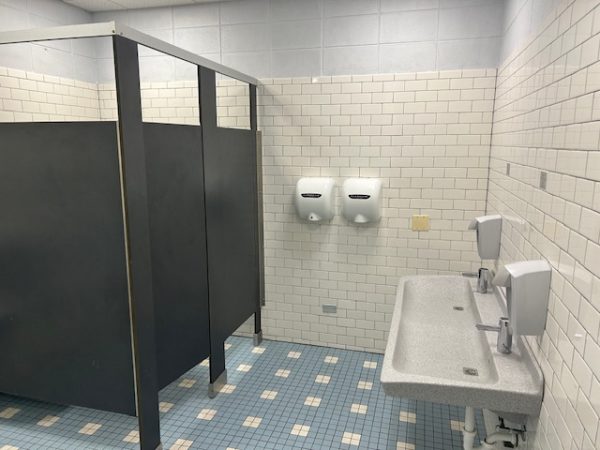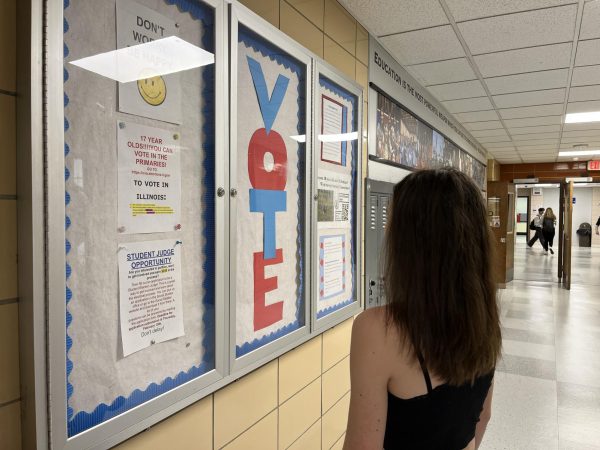New honors law aims to help students
AP Language teacher Nicole Proimos instructs junior Lorelei Hengst on an honors English project.
DGS will implement a new school policy to place students in classes in accordance with the Illinois Accelerated Placement Act. Beginning during the 2024-25 school year, all students who score above a certain percentile on standardized testing must be offered placement into advanced and honors courses. This aims to give more students the opportunity to take classes of high rigor and based on merit instead of teacher recommendation.
This Act was supposed to take effect during the 2023-24 school year, but it has been delayed for one year. School administration will be using PSAT scores to determine placement for juniors and seniors, and the Illinois Assessment of Readiness test (IAR) to place sophomores and incoming freshmen. Associate Principal Georgia Hash further explained which classes will be affected.
“It’s in the core areas: English, science, social studies and math. We’re doing it with the state graduation requirements; science and social studies have a two-year state requirement…English we have to do all four years, and math is a three-year graduation requirement at the state level,” Hash said.
Students will not be required to take the advanced class option if they score in the accepted range; that is still at the discretion of the parents and student. Additionally, students can still be recommended by their teacher for honors placement even if they did not perform well on the standardized test.
Prior to this act, some students who were not placed into honors classes have found it very difficult to change their placement and take an advanced class, despite believing they are up for the challenge. Senior Merbeena Cherian described how her self-esteem was affected, feeling stuck in classes that she perceived as too easy.
“It always made me feel bad. I always wanted to be [in more difficult classes], and I always thought I wasn’t smart enough,” Cherian said.
The Accelerated Placement Act will additionally remove any internalized bias that teachers and administrators may or may not have when placing students into classes.
Hash expects to see a slight shift in the number of honors or AP classes versus standard level classes after the implementation of the act. While the number of students in each grade will not be changing, there could potentially be more students opting into higher level classes.
“If we run more English 1 Honors, we’re going to run less of the regular, so the number of teachers could be balanced. [We may] need to have another teacher teaching an honors level instead of teaching a regular level. I do think it’ll be different in the different departments,” Hash said.
Hash also anticipates the impact of this act to decrease over time since it also applies to middle and elementary schools. Less students are expected to change into honors classes in high school if they have already been placed at the correct level earlier on, but the option will still be available.












